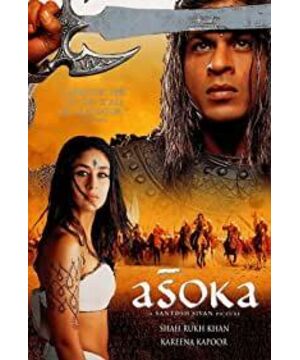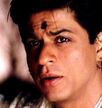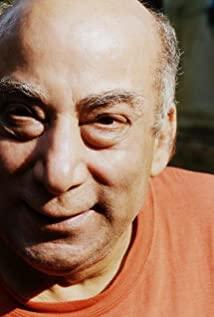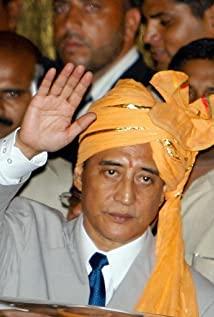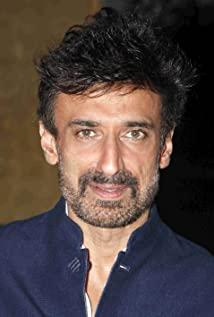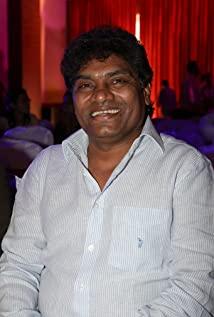Some people say that Ashoka's plot is still bloody, just a vulgar romance in an epic coat, and some people say that Ashoka's portrayal is not full enough, and the historical background is not grand enough. Of course it is more appreciated. I don't know any other movies in India, and I don't have a lot of experience. I just want to write my feelings for this movie based on my own experience.
There is no need to label it epic, and what is dog blood? There is not much ink on the historical background at that time, and the historical plot is relatively simple, but from the perspective of clothing, etiquette and some plots, we can get a glimpse of the differences between religions. In addition, Ashoka does not necessarily want all heroes to be as smart and brave. The story fully demonstrates Ashoka's superb skills and repeated victories, but it does not also highlight his great wisdom. As said in the film, the king is no different, the king is also a mortal. Personally, I feel that the film is not to create a perfect hero or great man, but to interpret a warrior who was pushed by history and reality step by step to tragedy but finally completed his self-transformation.
And listen carefully to the moving melody.
Song and dance scenes are necessary, but in the context of such a war, singing and dancing fights are a little different. My first reaction was that it was fake, but gradually Ashoka's movements gave me a sense of rhythm, which made his image not only hard and mighty on the surface, but also lively and innocent in his temperament. The latter is evident in his dealings with his "first love" mother and in telling stories to the little prince. Ashoka's life is like a rhythmic note, composing the song of a warrior facing life.
In fact, the line is very clear and very logical. Out of helplessness and love for his mother, King Ashoka left his country and embarked on a journey of travel. They fell in love with Princess Kava at first sight, and the two fell in love for life. They let go of their desire for power and their ambitions for the throne.
The rhythmic notes compose happiness and contentment.
Just when Kava stared at him affectionately, when the little prince Aya listened to his story, the mother's serious illness deception easily deceived King Ashoka. In fact, it was the father who needed him to fight and die. Before the expedition, he set out to pick up his sister and brother alone, and was told that the person he loved had died. This was a lie, a lie that was unspoken. He was in excruciating pain, like a walking corpse in battle, and lost the will to survive when he was seriously injured. As said in another review, such love, love is pure, love is thorough, love forgets itself. Another girl gradually fell in love while taking care of him, but she still wanted to change the medicine for him at her wedding. In the end, she donated blood because she killed the assassin and saved King Ashoka, and was rejected by the groom. Ashoka, whose love had died, took up this responsibility and married her as his princess.
The rhythmic notes compose silent hearts and blood-dry wounds.
If the death of a loved one made him no longer brave and happy, the death of his mother made him regain his fighting spirit, but it was crazy. But he still didn't give up his conscience at this time, and he still couldn't bear to do it in the face of his brother's murder of his mother. When the elder brother pressed him step by step with words, when the elder brother failed to attack and was finally killed on the throne, at that moment, he really died, and the King Pa that Kava loved was dead. He repeated the words of his brother, that if you want to ascend the throne, you must kill all the brothers.
The rhythmic notes buried the sunny Pa Wang, but created the bloodthirsty and crazy Ayu of hell.
In order to realize his grandfather's dream of unifying India and his abnormal desire for victory and conquest, King Ashoka sent troops to the land of his beloved. King Ashoka, who lost Kava and his mother, completely lost his sense of happiness and satisfaction. With no sense of security or emptiness in his heart, he can only fill this lack with constant victories and conquests. Burning, killing and looting all the way, Kagarin fought back from all over the country. The princess who escaped death practiced the swordsmanship taught by King Pa, determined to truly become a warrior in King Pa's mouth and defend her country. On the battlefield, when the brave Kava fought bloody battles, he saw Ashoka who was bloodthirsty and slaughtered in the dust. Is it Ayu or Pawang?
The rhythmic note spectrum trembles, telling surprise and despair.
When King Ashoka discovered Kava, he burst into tears in an instant, and fell to his knees sobbing. This is love, enough to burn everything, and enough to extinguish everything. Everything is finally clear. The two people in pain are no longer hostile kings and princesses, but lovers who can only be speechless and choked together. At this moment, a pure and immature but somewhat timid voice sounded, "King Pa?" Don't leave us this time. Well, never leave again, no one can take your land, I will protect you, and your sister, the king of Kagarin. Originally thought that the climax of the story would end here, but Aya, who was satisfied, fell to the ground with a bang. For a moment, the ground seemed to shake. Remember, when the assassin put the knife on Aya's neck last time, Aya wet his pants in fear, but now he tried to open his eyes and said, look, I didn't cry. It's King Pa, a sister, a noble bloodline, or growing up, so that young children learn to be strong, love is not afraid of death, and the king is also not afraid of death. At that moment, the hearts of Ashoka and Kava were destroyed again, and I came back, not with hundreds of elephants and horses, but with war horses and death.
The rhythmic notes screamed, weeping in the sky, endless regret and pain.
The plot ends here, King Ashoka put down his butcher's knife, converted to Buddhism, turned from a demon into a Bodhidharma, ruled the world with love, and warmed every inch of land in future generations with the compassion of Buddhism. The princess' wish came true. When her children were born, what she saw was love in exchange for blood.
The rhythmic notes finally write the last chapter, even if the sun is behind the dark clouds, it will eventually warm every inch of the ground soaked in blood.
View more about Ashoka the Great reviews


